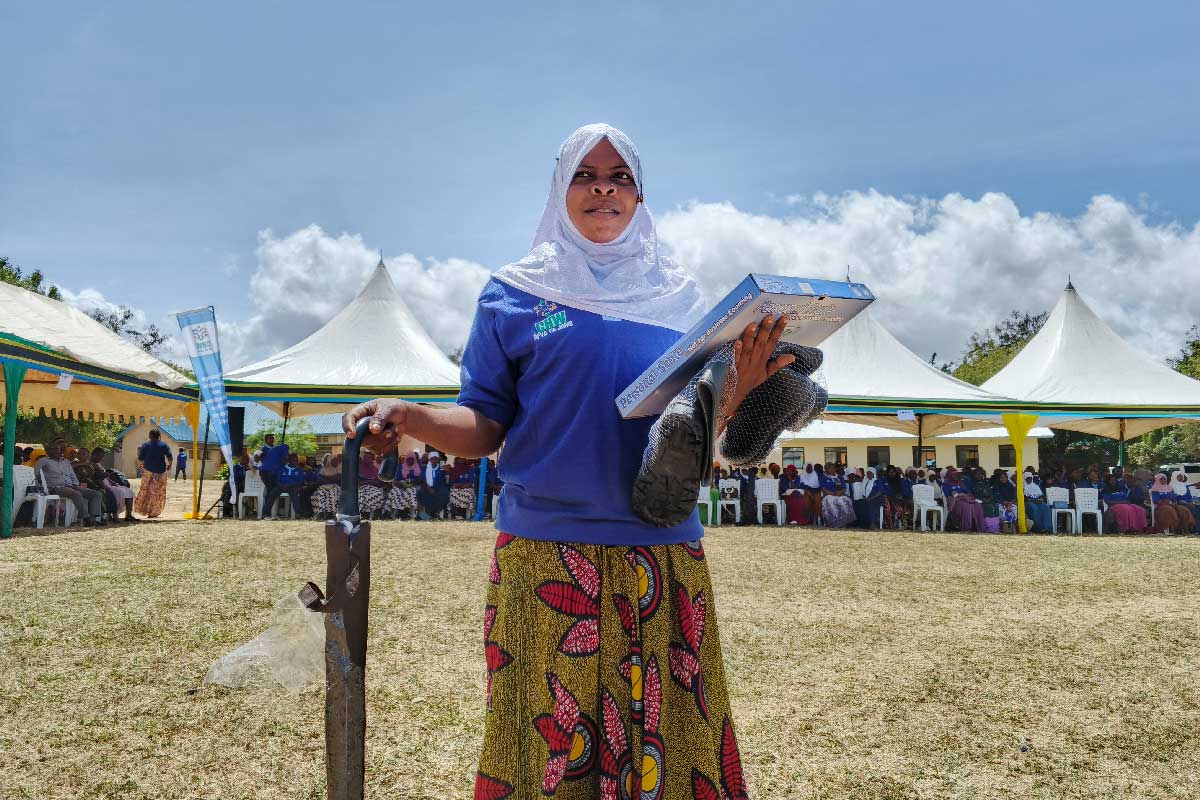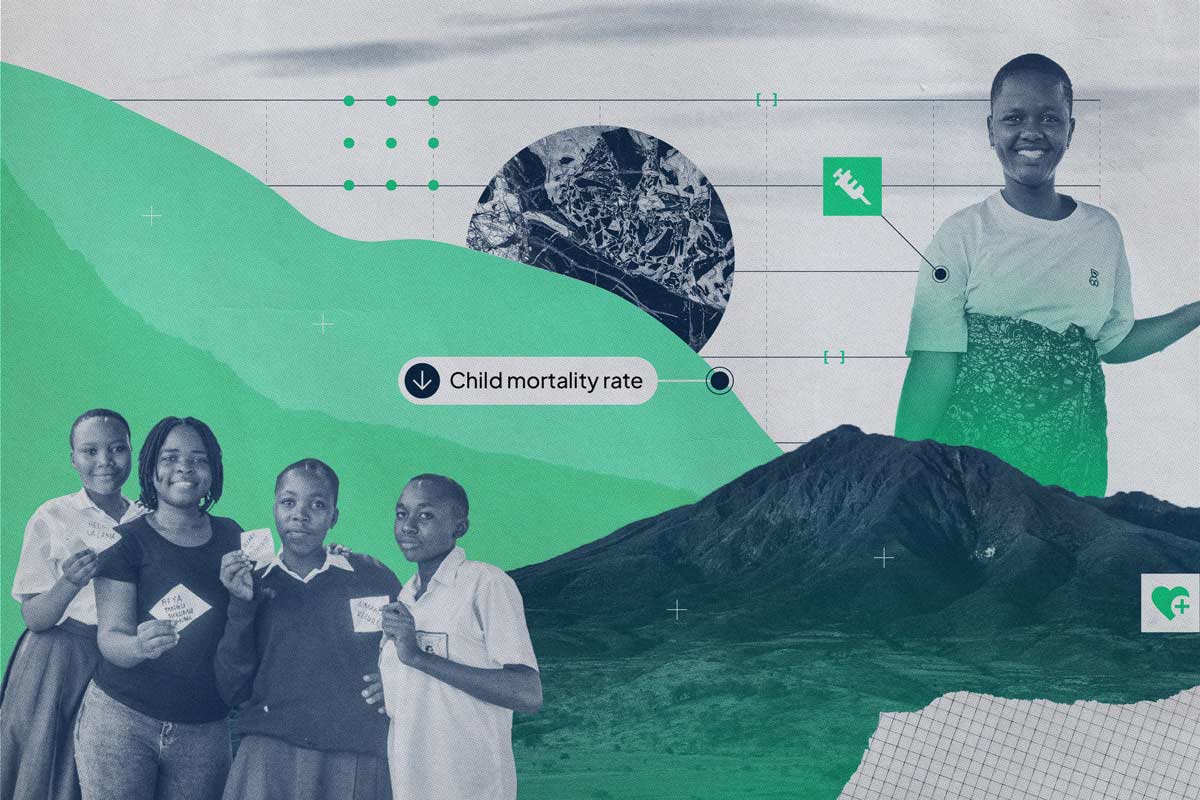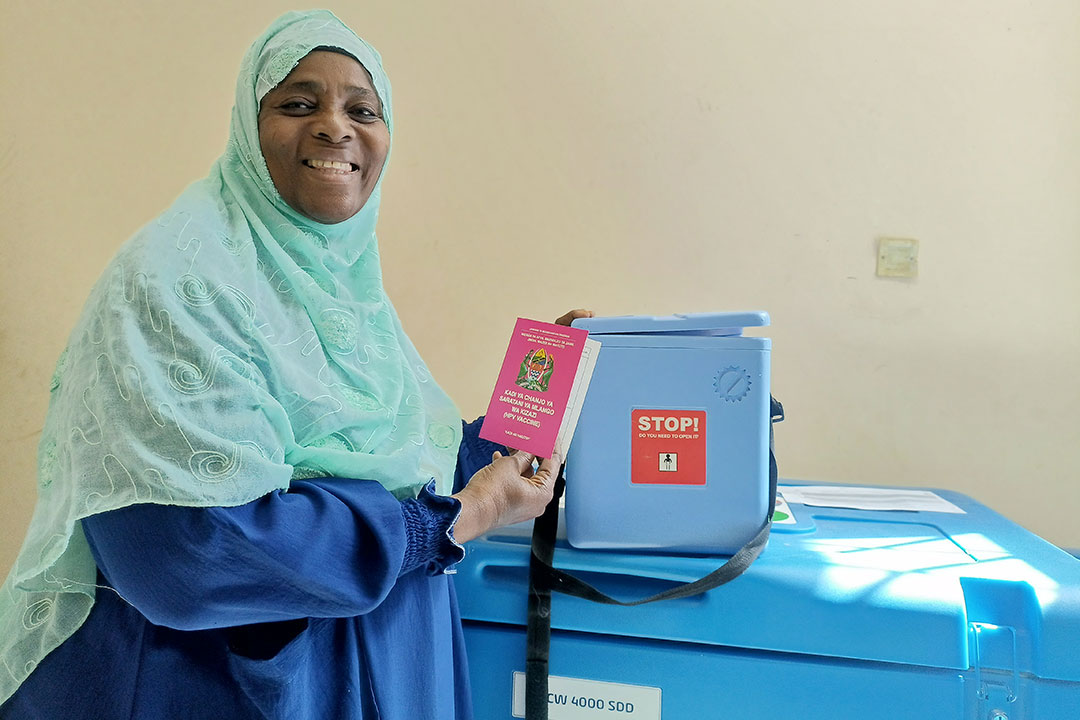Tanzania tackles second Marburg outbreak with hard-won lessons
After ten fatalities, Tanzania's Marburg outbreak is under control. But the deadly virus has an animal reservoir, which means communities must stay vigilant.
- 4 March 2025
- 6 min read
- by Syriacus Buguzi
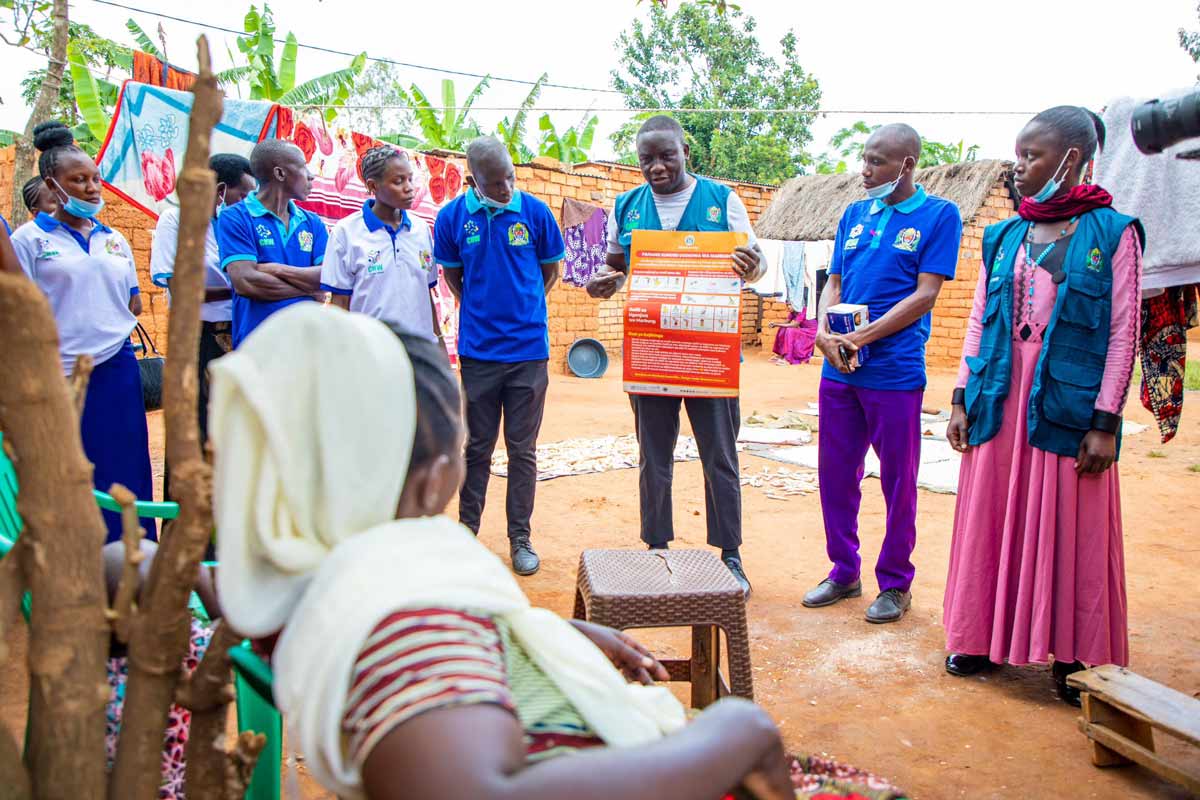
Grim memories of healthcare workers in protective gear resurfaced in the Kagera region of northwest Tanzania when, for the second time, an outbreak of the deadly Marburg Virus Disease (MVD) was declared by President Samia Suluhu Hassan on 20 January 2025, confirming one case of the disease reported in the country’s Biharamulo district.
“When I heard the President’s announcement on the radio declaring that the disease had come back, I immediately thought of the worst,” says Jackson Rugarabamu, a resident of Ibaraizibu in Bukoba district, recalling what he had witnessed during the 2023 Marburg virus outbreak.
Although the latest outbreak has been reported in a different area, about 200 kilometres from where Rugarabamu lives, he explains that the announcement dredged up unsettling memories – most vivid in his mind is the sight of health workers in full PPE burying a victim during the March 2023 outbreak.
But with a tone of cautious hope, he says, “Thankfully, the authorities have been quick to get information out about how we can protect ourselves from catching the disease.”
“We have demonstrated in the past our ability to contain a similar outbreak, and we are determined to do the same this time around,” declared President Hassan in Tanzania’s capital city Dodoma last month, alongside World Health Organization (WHO) Director-General Dr Tedros Ghebreyesus, who had visited Tanzania as the President confirmed the outbreak and the index case.
Lessons learned from the 2023 outbreak, which claimed six lives, would guide efforts to curb the current outbreak, the President said, as she announced the deployment of surveillance teams to the affected district and other containment measures.
Under control
Health officials have since been working to contain the spread through contact tracing and isolation, urging public vigilance as the situation evolves. The Ministry of Health says the outbreak is now under control.
As of 10 February 2025, a total of ten cases had been counted, with two of those confirmed through laboratory testing, and eight classified as “probable”, according to data presented on February 13 during a weekly update by Africa’s Centres for Disease Control and Prevention (Africa CDC) sourced from the Ministry of Health in Tanzania. The last confirmed case had been identified on 21 January. Sadly, all ten Marburg patients have died, resulting in a 100% case fatality rate No new cases have been reported in the weeks since.
“We swiftly embarked on risk communication and community engagement, starting at the grassroots level, explained Dr Norman Jonas, National Coordinator for the Community Based Health Services Program, who has been working with community health workers in about 17 wards of Biharamulo District, the epicentre of the outbreak in Kagera.
“This approach has allowed us to be responsive to community needs, equipping them with knowledge on prevention measures and ultimately curtailing further transmission,” he says.
The 191 community health workers present in the district have been at the forefront of the urgent mission to raise awareness in communities, with each visiting eight to ten households a day to educate communities on how to protect themselves from catching the virus.
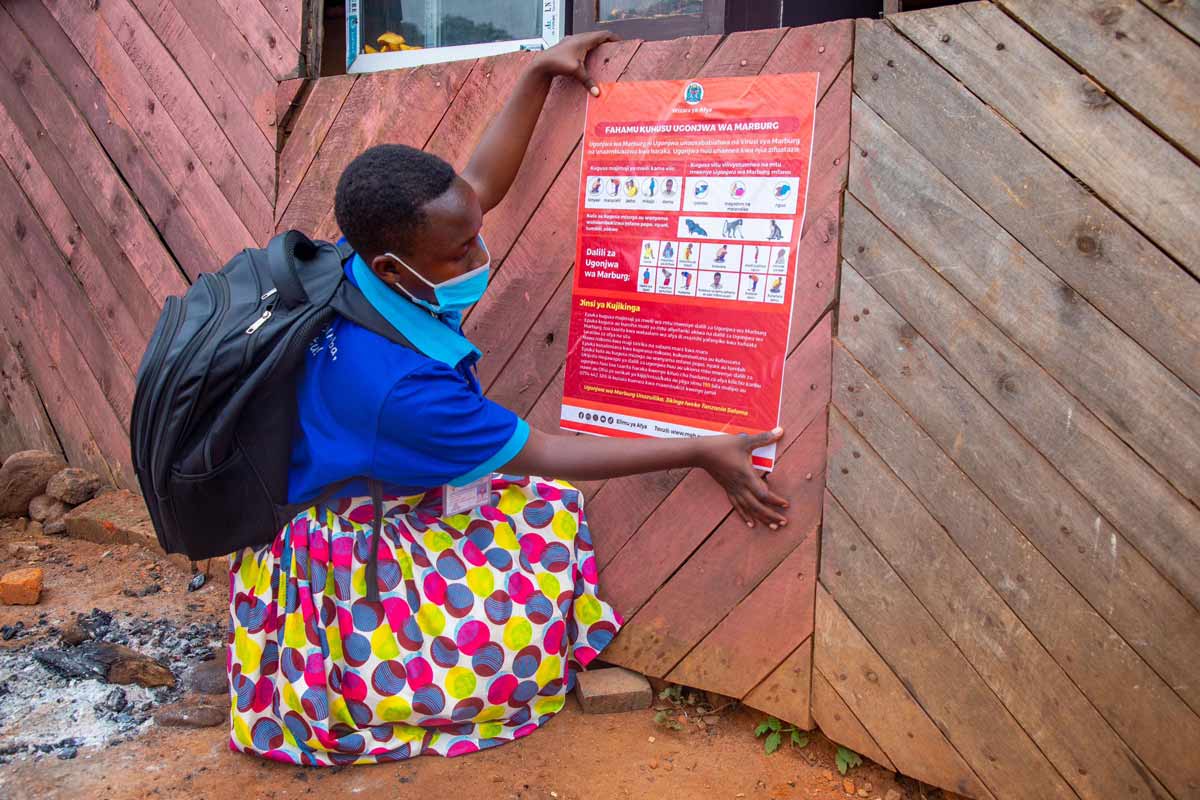
Viral scare
Despite Health Ministry reassurances, for ordinary Tanzanians, news of the outbreak raises anxiety. “I hear it’s like Ebola,” Rugarabamu says, “and that's worrying.”
Indeed, like Ebola, MVD is a severe and often fatal haemorrhagic fever caused by a filovirus. The case fatality rate can range from a low of 22.7% (during Rwanda’s 2024 outbreak) to a staggering 88%.
It spreads to humans from fruit bats – in plentiful supply in Kagera – and then through direct contact with infected bodily fluids, surfaces and materials.
Dr Elisha Osati, an internal medicine specialist at Tanzania’s biggest referral hospital, the Muhimbili National Hospital, says drug therapies for patients of Marburg are still in development stages, and there are currently no fully approved vaccines or antiviral treatments for MVD on the market. A promising candidate vaccine from the Sabin Vaccine Institute, already in Phase 2 trials, was rapidly deployed in Rwanda following the outbreak’s confirmation, possibly helping to achieve that outbreak’s record-low case fatality rate.
“In the meantime, the best chances of survival can be offered to those who catch the disease through early and aggressive supportive care, focusing on rehydration and symptomatic treatment,” he told VaccinesWork.
In Tanzania, Dr Ntuli Kapologwe, Director of Preventive Services at Tanzania’s Ministry of Health, says rapid outbreak response and medical research are both important.
Hard-won knowledge
On the ground in the affected region of Kagera, one expert tells VaccinesWork that the outbreak containment efforts have been directly informed by the hard-won lessons from the 2023 outbreak.
Dr Martin Rwabilimbo, the Emergency Operation Centre (EOC) Focal Person for Kagera Region, explains that ongoing surveillance and follow-up with survivors to prevent future outbreaks has been a key strategy.
“The previous outbreak taught us the importance of swift action, especially in isolating individuals who had contact with confirmed cases, including healthcare workers. This proved vital in curbing further transmission.
“Additionally, preparedness exercises, like simulations, have been invaluable in understanding the complexities of an outbreak and improving our response capabilities,” he says.
In early December 2024 – prior to the latest MVD outbreak – Tanzania had already stepped-in in response to Marburg cases in neighbouring Rwanda. WHO, in collaboration with the Ministry of Health and other partners, organised a tabletop simulation exercise, according to a report by the WHO.
The exercise involved 40 individuals from various sectors involved in emergency response at the national, regional, and district levels, aimed to test the National Multi-Hazard Emergency Response Plan and the National MVD Contingency Plan in preparedness for a potential Marburg virus outbreak.
Have you read?
Community response
But underneath the ongoing containment efforts, lies the potential for deeply ingrained cultural practices that could jeopardise these efforts, which the local authorities are tackling through risk communication and community engagement.
“To confront this virus, we need to also confront our habits,” explained the Kagera Regional Commissioner, Hajjad Fatma Mwasa, as she stood before journalists on 30 January 2025. The commissioner specifically addressed the need for communities to discontinue the practice of kissing the deceased as a final respect, a cornerstone of community grieving in Kagera and many other parts of Tanzania.
Similarly, large funeral gatherings, which typically draw hundreds of people into confined spaces, were identified as a major concern. Mwasa also urged residents to critically assess the necessity of all social gatherings, emphasising the importance of minimising social contact to reduce the risk of contagion.
